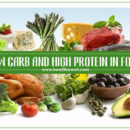Vitamin D: An Important Factor in Our Life
Vitamin D is used for preventing and treating rickets, a disease that is caused by not having enough vitamin D (vitamin D deficiency). Vitamin D is also used for treating weak bones (osteoporosis), bone pain (osteomalacia), bone loss in people with a condition called hyperparathyroidism, and an inherited disease (osteogenesis imperfecta) in which the bones are especially brittle and easily broken. It is also used for preventing falls and fractures in people at risk for osteoporosis, and preventing low calcium and bone loss (renal osteodystrophy) in people with kidney failure.
Vitamin D is a vitamin which can be found in small amounts in a few foods, including fatty fish such as herring, mackerel, sardines and tuna. To make vitamin D more available, it is added to dairy products, juices, and cereals that are then said to be fortified with vitamin D but most vitamin D – 80% to 90% of what the body gets – is obtained through exposure to sunlight. Vitamin D can also be made in the laboratory as medicine.

According to the National Institutes of Health’s Office of Dietary Supplements, while very few foods in nature contain vitamin D, salmon contains some of the highest levels in foods.
Vitamin D has attained a special place in research and day-to-day life. It is also famous by the name of ‘sunshine vitamin’. Without wasting much of your time, I would straightaway jump to the importance of vitamin D in our life. I would discuss the causes of vitamin D deficiency, the consequences of vitamin D deficiency, and how we can prevent the deficiency of this essential vitamin.
Causes of Vitamin D Deficiency
- Less (or absolutely no) exposure to sunlight
- Excessive use of sunscreens and make-up
- Poor intake of food that is rich in vitamin D
- Spending most of the time indoors
- Illness where one gets bedridden
Consequences of Vitamin D Deficiency
- At risk for osteoporosis, osteomalacia, and other bone-related diseases
- Increased risk of fractures
- Poor absorption of calcium
- Uncontrolled weight gain
- Poor teeth health
- Weaker immunity
- At risk for diabetes because of poor insulin secretion
Where Do We Get It
You can get some vitamin D from food and herbal sources, but definitely not enough to give your body the daily recommended amount that’s needed. You need to combine this with another way of getting a good amount of vitamin D. The main source of vitamin D is the sun… specifically the UV rays the sun produces.
How much vitamin D a person gets from the sun varies depending upon how long they’re in the sun, how much of their body is exposed to the UV rays, and how close they are to the sun. The umbrella recommendation is 20 minutes of good sun exposure a day, but I’m not sure how much stock I’d put in that. In my opinion, healthy sun exposure is a good thing, and we need to get a lot of it. I’m not going to go into that so much today, but later on this month I’ll be talking about getting out in the sun and doing it safely.
You also have the option of going with a vitamin D supplement. Vitamin D3 is the natural form of vitamin D, and vitamin D2 is the synthetic form of vitamin D. Both of these must be converted into a more active form once they are in the body, but vitamin D3 converts much quicker than vitamin D2. Vitamin D2 also has a shorter shelf-life, and this is the most common form of vitamin D that you’ll get from a prescription.

Vitamin D is found naturally in only a few foods such as fatty fish, egg yolks and cheese. However, milk, cereals and other foods are fortified with vitamin D. In fact, fortified foods supply the bulk of vitamin D in the American diet.

Vitamin D is a fat-soluble vitamin. It is found naturally in only a few foods, but can be made in the body with the help of UV-B radiation from the sun
How to Prevent Vitamin D Deficiency
If you are deficient in vitamin D, do not straightway jump to supplements. Our daily requirement for vitamin D stands are 600-1000 international units, which can be had from natural foods. Following are the steps you can take to prevent vitamin D deficiency.
- Consume more of milk and milk products.
- Consume fishes like salmon, tune, and sardines.
- Orange juice, oils, and soy milk are rich sources of vitamin D.
- Expose yourself to sunlight for at least 15-20 minutes per day.
- Consume supplements only under supervision of your physician.
Therefore, Vitamin D is good for conditions of the heart and blood vessels, including high blood pressure and high cholesterol. It is also used for diabetes, obesity, muscle weakness, multiple sclerosis, rheumatoid arthritis, chronic obstructive pulmonary disease (COPD), asthma, bronchitis, premenstrual syndrome (PMS), and tooth and gum disease.
How Much Vitamin D Do We Need
Seeing as how you can’t get enough vitamin D from foods to even reach the minimum recommended amount to prevent rickets (bone deformities), supplements and sun exposure are your best bets. Like I said before, I’m not a big fan of supplements, but if I lived somewhere that I couldn’t get a lot of good quality sunlight, I’d go for supplements… specifically a natural supplement like fermented cod liver oil.
As far as a recommended amount, 400 IU (international units) is the amount recommended to prevent rickets, but many experts believe we need much more than that. Some even estimate that we need 5,000 IU a day in order to have our vitamin D levels be in the therapeutic range. How much you or your child needs can really only be determined by blood tests, and again this will change depending upon where you live and the time of the year it is. During some times of the year, we may need that much, and during other times we may need less… or more.
- According to the Institute of Medicine, the upper safety limit (UL) for vitamin D for adults is 100 mcg (4,000 IU) per day. As with all dietary supplements, talk to your doctor or other licensed healthcare professional prior to use if you have or suspect a medical condition, if you are taking over-the-counter or prescription drugs or if you are pregnant or lactating.






